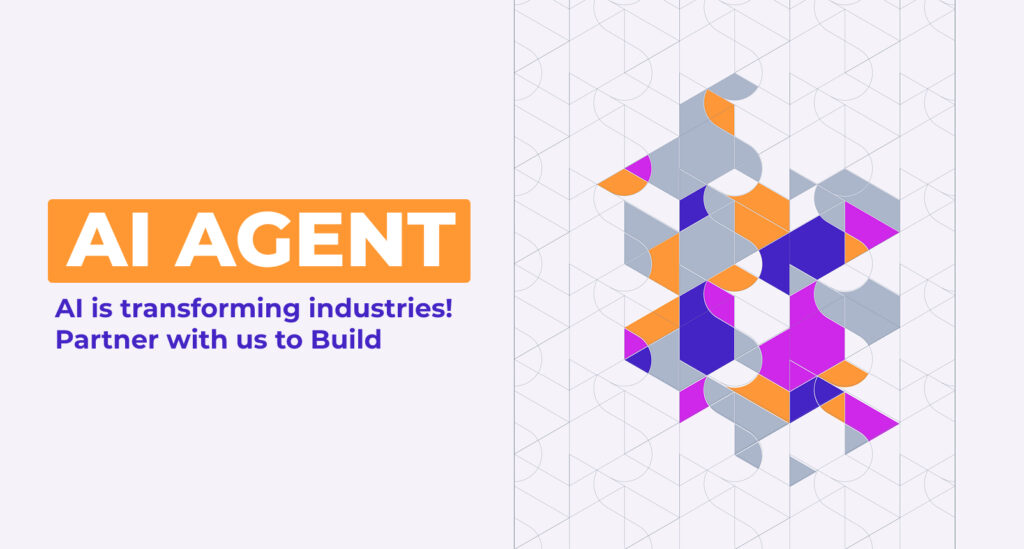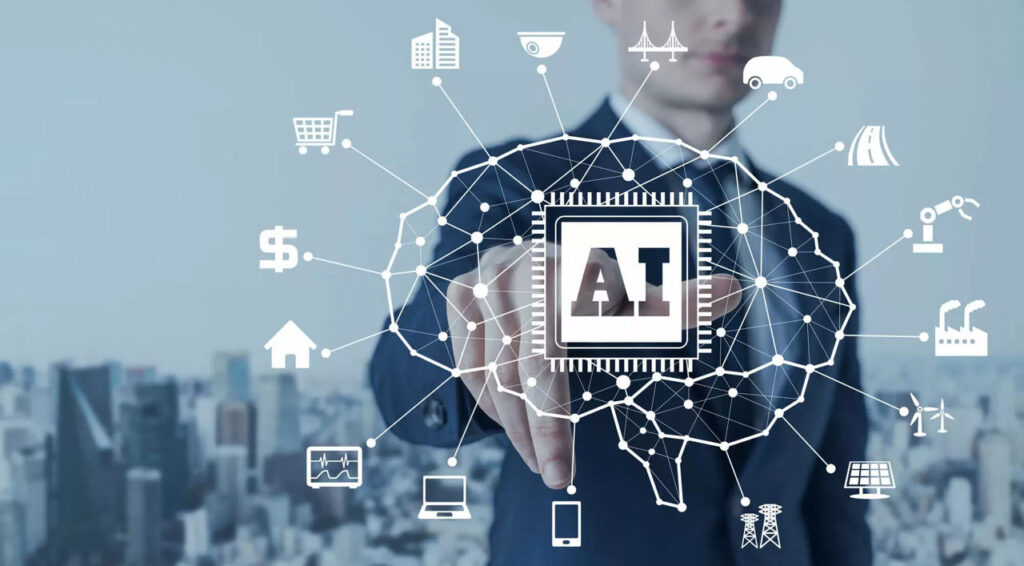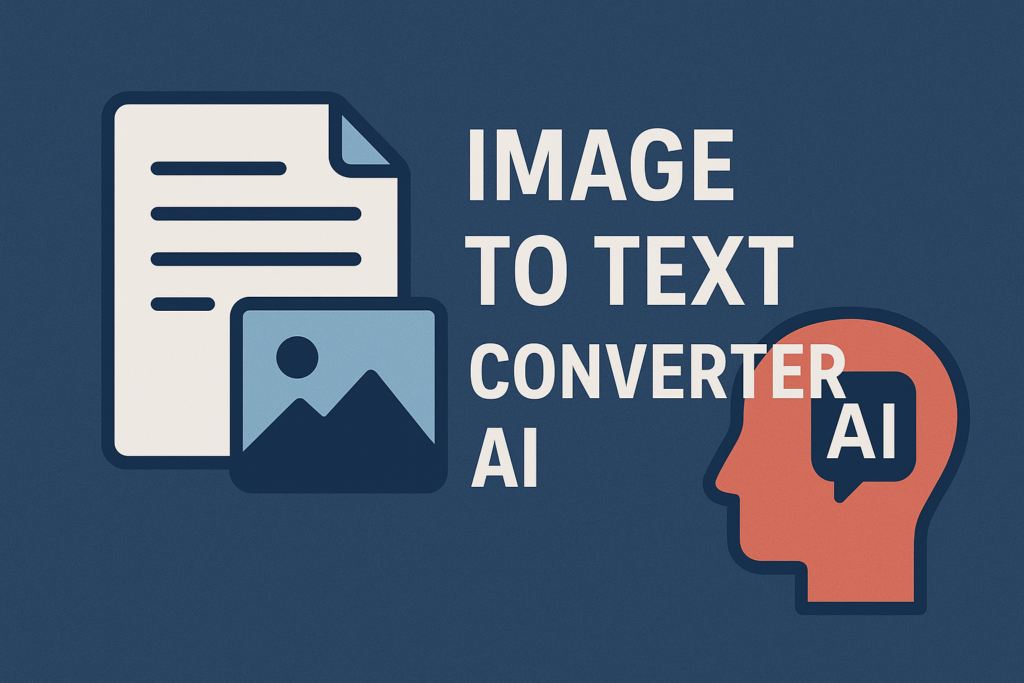Artificial Intelligence (AI) has already become a cornerstone of enterprise growth, with organizations leveraging data-driven insights to remain competitive. However, the next frontier of enterprise AI is the development of AI agents—intelligent, autonomous systems capable of reasoning, learning, and acting independently in dynamic environments.
AI Agent Development combines advanced machine learning, natural language processing (NLP), reinforcement learning, and automation to build systems that can perform complex tasks, interact with humans, and optimize operations with minimal oversight. For enterprises, these intelligent agents are not just tools—they are becoming digital co-workers that drive productivity, efficiency, and innovation.
In this blog, we’ll explore how AI agent development is transforming enterprise operations, the technologies behind it, key benefits, industry applications, challenges, and the future potential of AI-powered agents.
What Are AI Agents?
An AI agent is a software entity designed to perceive its environment, make decisions based on inputs, and take actions to achieve specific goals. Unlike traditional automation, which follows predefined rules, AI agents use advanced algorithms to adapt, learn, and improve over time.
These agents can:
- Interact with users via natural language.
- Learn from feedback and data through machine learning.
- Handle multi-step tasks autonomously.
- Collaborate with humans in decision-making processes.
For enterprises, AI agents represent a significant evolution from basic automation bots. They can reason, plan, and optimize workflows, making them a powerful asset in transforming business operations.
Why AI Agent Development Matters for Enterprises?
Traditional enterprise systems often suffer from rigidity, inefficiency, and data silos. AI agents solve these problems by being adaptive, proactive, and intelligent, which creates measurable impact in:
Automation of repetitive tasks – reducing operational costs.
Improved decision-making – using real-time analytics.
Enhanced customer service – through AI-powered chatbots and assistants.
Faster response times – in crisis management, IT, or supply chain.
Personalization – delivering tailored solutions for employees and customers.
By integrating AI agents into core enterprise operations, businesses can achieve greater agility, scalability, and resilience.
Key Capabilities of AI Agents in Enterprise Operations
1. Autonomous Decision-Making
AI agents go beyond rule-based automation by using reinforcement learning and predictive models to make decisions. For example, in supply chains, agents can reroute shipments autonomously when disruptions occur.
2. Natural Language Processing (NLP)
Agents equipped with NLP can understand and respond to human queries, enabling more intuitive customer support and employee assistance.
3. Continuous Learning
Through machine learning integration, AI agents evolve with new data, improving accuracy and efficiency over time.
4. Collaboration with Humans
AI agents support human-in-the-loop systems, where agents handle routine tasks while humans manage exceptions or high-level strategies.
5. Task Orchestration
Agents can manage workflows end-to-end, coordinating multiple processes across departments without constant human supervision.
Benefits of AI Agent Development in Enterprises
1. Operational Efficiency
AI agents handle repetitive, low-value tasks, freeing employees for strategic initiatives. For example, in HR, agents can automate candidate screening, payroll queries, and onboarding processes.
2. Scalability
As enterprises grow, managing operations becomes complex. AI agents scale seamlessly, managing thousands of simultaneous tasks without additional human resources.
3. Cost Reduction
By automating repetitive work and reducing error rates, AI agents cut down operational expenses while improving output quality.
4. Improved Decision-Making
AI agents analyze real-time data with explainable AI (XAI) techniques, giving managers actionable insights instead of just raw predictions.
5. Customer Experience Enhancement
Agents with human-like reasoning can provide personalized support, predict customer needs, and resolve issues faster than traditional support systems.
6. 24/7 Availability
Unlike human workers, AI agents operate continuously, ensuring round-the-clock enterprise support.
Industry-Wise Applications of AI Agents
Finance
- Fraud detection through intelligent monitoring agents.
- AI-powered trading assistants for portfolio optimization.
- Customer service agents for credit and loan inquiries.
Healthcare
- Virtual health assistants for patients.
- AI agents that assist doctors with diagnostic support.
- Automated claims processing and medical data analysis.
Retail & E-Commerce
- Smart agents for personalized product recommendations.
- Autonomous inventory and supply chain management.
- Customer engagement agents for real-time shopping support.
Manufacturing
- Predictive maintenance through monitoring agents.
- Quality assurance powered by AI inspection agents.
- Workflow optimization across production lines.
Telecommunications
- AI agents managing network traffic.
- Virtual assistants for troubleshooting customer issues.
- Automated billing and subscription management.
Human Resources
- Virtual HR agents for employee engagement.
- Intelligent recruitment agents for resume screening.
- Training assistants offering personalized learning paths.
Challenges in AI Agent Development
While promising, building enterprise-ready AI agents is not without hurdles:
Data Quality & Integration – Poor-quality data can reduce accuracy.
Security Concerns – AI agents must be protected against data breaches and adversarial attacks.
Talent Gap – Skilled professionals in reinforcement learning, NLP, and multi-agent systems are in high demand.
Scalability Issues – Designing agents that scale across enterprise-level operations is challenging.
Ethical & Compliance Risks – AI agents must align with regulatory frameworks and ethical guidelines.
Future of AI Agent Development in Enterprises
The next generation of AI agents will not just be assistants but collaborators. Businesses can expect:
Multi-Agent Systems – AI agents working in teams to coordinate enterprise tasks.
Explainable AI (XAI) – Ensuring transparency and trust in decision-making.
Personalized Workflows – Agents adapting to individual employee styles.
Integration with IoT and Blockchain – Creating secure, data-driven ecosystems.
Proactive Decision Systems – Agents anticipating enterprise needs before they arise.
With advancements in deep learning, symbolic logic, and cognitive reasoning systems, AI agents will evolve into indispensable digital colleagues that reshape enterprise strategy.
How Enterprises Can Get Started with AI Agent Development
Identify Business Needs – Focus on processes with high-volume repetitive tasks.
Start with Pilot Projects – Test AI agents in specific areas like customer support or HR.
Build Hybrid AI Models – Combine deep learning with reasoning for more accurate outcomes.
Adopt Explainable AI (XAI) – Ensure transparency for compliance-heavy industries.
Scale Gradually – Expand AI agent usage across departments as maturity grows.
Collaborate with Experts – Partner with AI development firms specializing in enterprise AI agents.
Conclusion
AI agent development is more than just another AI trend—it represents a foundational shift in how enterprises operate. By combining autonomy, reasoning, and continuous learning, AI agents are driving transformation across industries. They deliver higher efficiency, better decision-making, improved customer experiences, and cost savings.
While challenges in security, ethics, and integration exist, the future clearly points towards enterprises adopting AI agents at scale. Businesses that embrace AI agent development today will not only gain a competitive edge but also build the foundation for sustainable, intelligent, and future-ready operations.
In the coming years, enterprises won’t just use AI—they’ll work alongside intelligent AI agents that redefine productivity, strategy, and growth.



